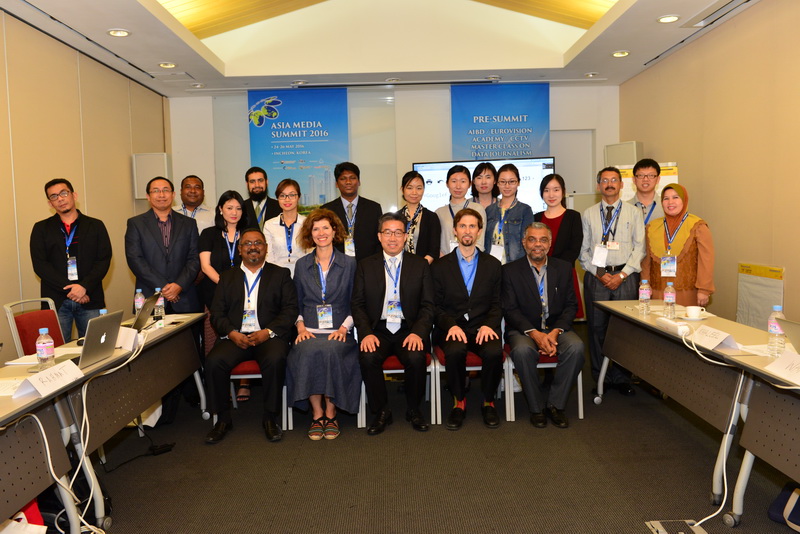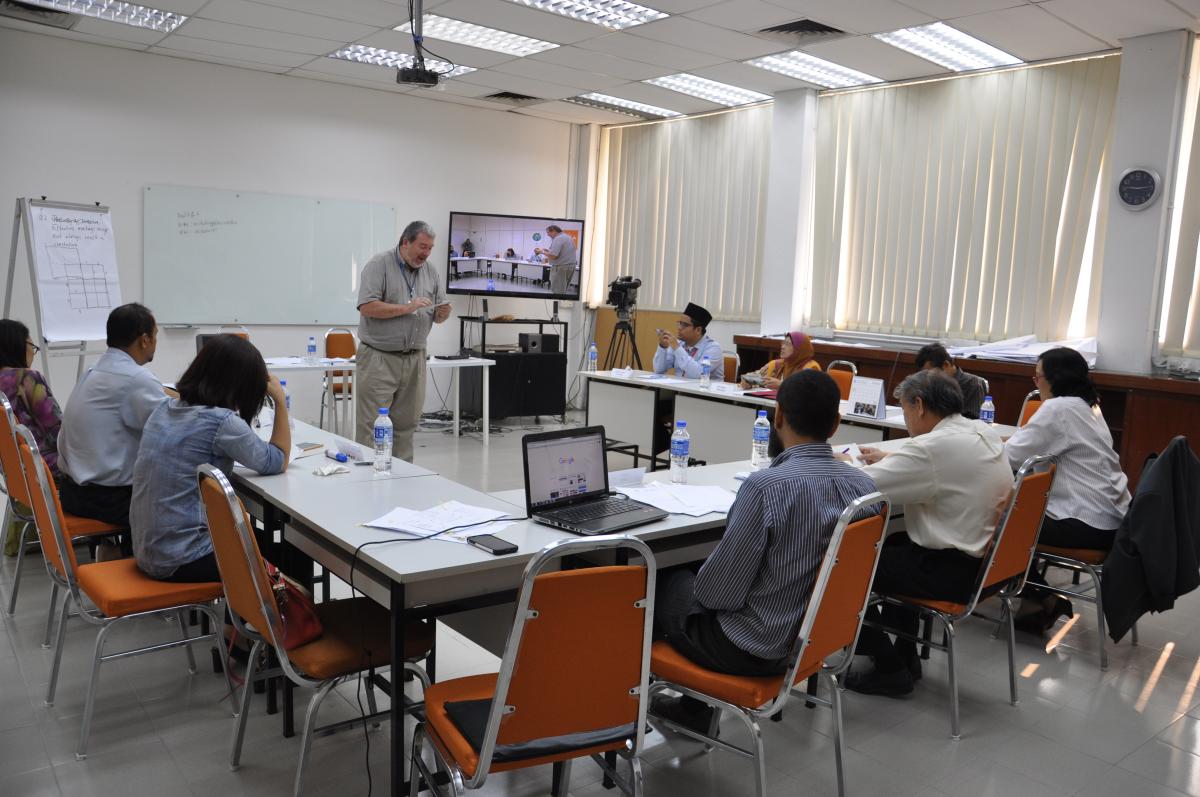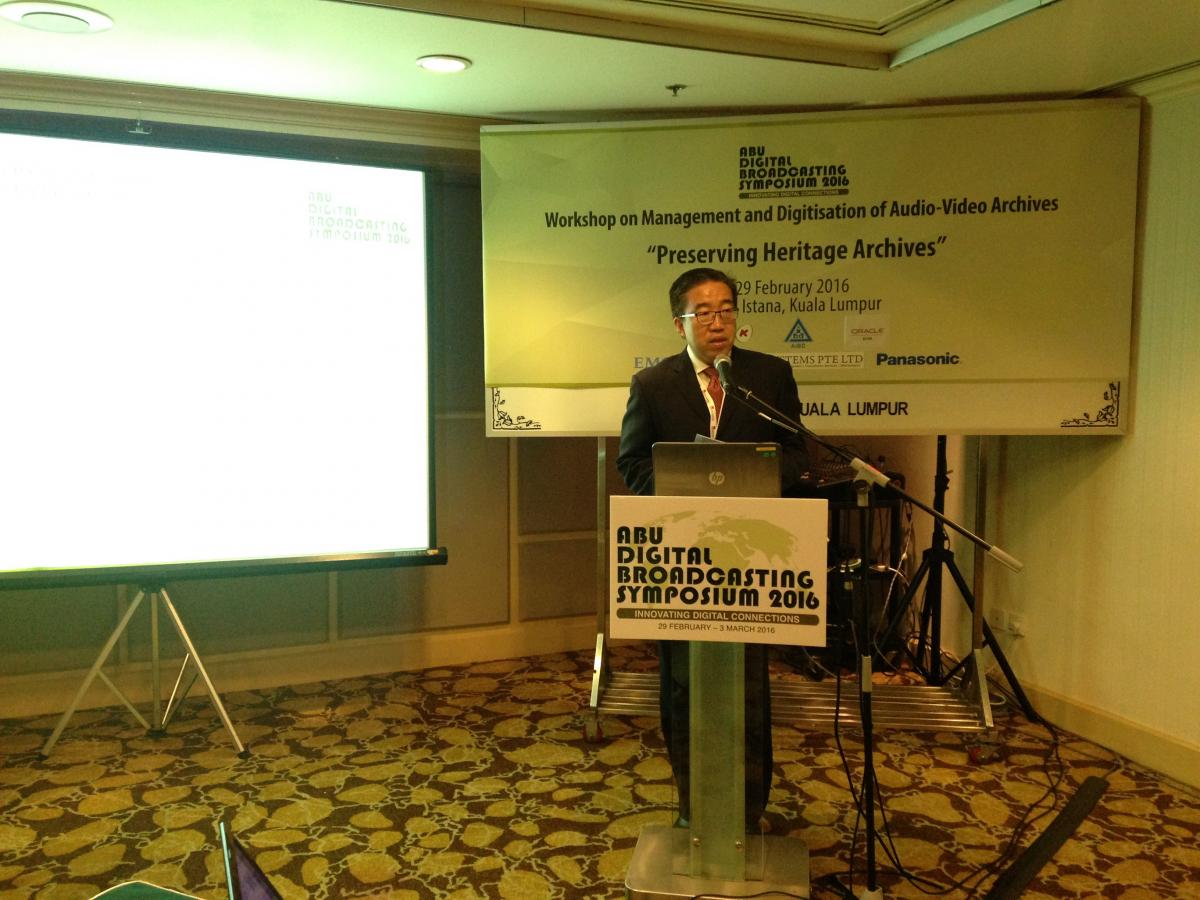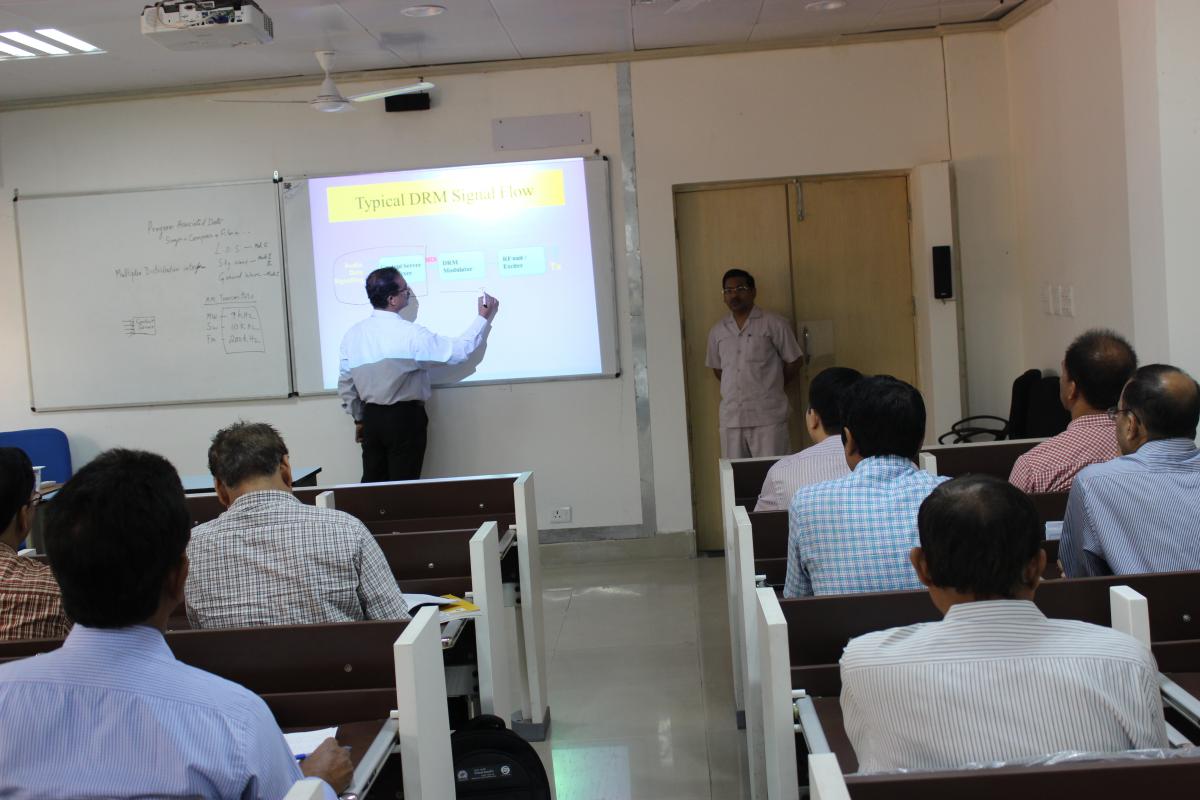News organisations across the globe are increasingly using data journalism to find new and compelling ways of telling stories with numbers and infographics, and make people more engaged with information.
“Data journalism is making the journalism field more exciting and vibrant,” Mr Kevin Anderson, Faculty member of EBU’s Eurovision Training Academy, told participants of the AIBD/Eurovision/CCTV Master Class on Data Journalism held Monday in Incheon, South Korea.
News organisations across the globe are increasingly using data journalism to find new and compelling ways of telling stories with numbers and infographics, and make people more engaged with information.
“Data journalism is making the journalism field more exciting and vibrant,” Mr Kevin Anderson, Faculty member of EBU’s Eurovision Training Academy, told participants of the AIBD/Eurovision/CCTV Master Class on Data Journalism held Monday in Incheon, South Korea.
He said journalists are always on the lookout for approaches to make dry and uninteresting stories really engaging, and data journalism provides that opportunity.
The world is amassed with data, and governments are increasingly making them available to the public for the purpose of transparency or in pursuit of a political agenda. “Journalists are excited about the increasing access to data for it provides them the opportunity to tell a complex story through engaging infographics,” Anderson said.
For those beginning to do data journalism, they can initially rely on websites of governments, private sector and universities to generate relevant and credible data for a story. But in countries with a long history of using data journalism like the USA, they collect their own data, and depend on multiple sources. “It takes a level of sophistication and confidence to do that,” Anderson pointed out.
To pursue data journalism effectively, Anderson recommends a team of various skills to work on available data. The team should include a journalist who has a sense for news and news judgement, a researcher or analyst who can provide background, context and analysis, and a designer from the motion graphics department who can offer visualisation techniques and creativity.
“Rarely can you find one person or one journalist equipped with all those skills to do data journalism. You need the collaboration of talented people with different skills for this purpose,” Anderson said.
If a journalist wishes to go into data journalism, Anderson has a piece of advice – be prepared to deal with math. “You have to be comfortable and confident in dealing with numbers,” he said.
The two-day workshop covered an overview of best practices in data journalism, ways of finding and gathering your own data, scraping data from the web, use of timelines and maps and building a data team and hanging projects.
The master class was one of five presummit events leading to the Asian Media Summit to take place on Tuesday in Incheon, South Korea.
Anderson who served as workshop consultant has more than 15 years of global journalism and media management experience in his work with the BBC, The Guardian and Gannett.
New Ways to Tell Compelling Stories through Data Journalism
News organisations across the globe are increasingly using data journalism to find new and compelling ways of telling stories with numbers and infographics, and make people more engaged with information. “Data journalism is making the journalism field more exciting and vibrant,” Mr Kevin Anderson, Faculty member of EBU’s Eurovision Training Academy, told participants of the AIBD/Eurovision/CCTV Master Class on Data Journalism held Monday in Incheon, South Korea.
Steps for a Successful Social Media Community
Setting goals, creating realistic plans and strategies, defining the audience and platform to use to meet your objectives, and determining how to measure results are critical requirements for success in creating a vibrant social media community.
“ You cannot engage effectively in social media without these steps; otherwise your efforts will lead to failure,” said Mr. Benjamin Dalmulder,, Team Manager for Digital Analytics and Search Engine Optimisation, and Ms Katarina Gomes, digital strategist, both of RNW Netherlands, during the regional Workshop on Online and Social Media Analytics held Monday in Incheon, South Korea. Both served as consultant for the project organised by AIBD and supported by RNW, Netherlands.
Popularising Drones for News and Dramas
The use of drones or unmanned aerial vehicles (UAV) is increasingly becoming popular for content production on various media platforms. Drones have changed the ‘shooting environments’ in news and drama production, enriching content and viewers’ satisfaction. More broadcast stations are also beefing up their in-house capabilities for drone services.
These are some of the trends in content production that Mr James Ku, President of James Company Ltd,. Korea, highlighted in his presentation Monday during the workshop on ‘Using Drones for Production; A New Wave in Broadcast Content Production,” one of the five –pre-summit events leading to the Asia Media Summit to be held tomorrow in Inchon, Korea.AIBD/IPPTAR Regional workshop on Training of Trainers
AIBD/PRD/ADPC/UNISDR In-Country Workshop on Climate Change and Disaster Risk Management
The In-Country Workshop on Climate Change and Disaster Risk Management was held in Bangkok from 30 to 31 March 2016. Our host and partner for this event was the Public Relations Department (PRD) of the Government of Thailand and the event was held at their headquarters. The Bangkok office of the Asian Disaster Preparedness Center (ADPC) and the United Nations Office for Disaster Risk Reduction (UNISDR) both provided resource persons to make this workshop possible. The workshop was attended by 28 producers, journalists and media officers from different departments in PRD.
Regional Workshop on Management and Digitisation of Audio-Video Archives
Asia-Pacific Institute for Broadcasting Development (AIBD) in collaboration with the Asia-Pacific Broadcasting Union (ABU) organised a one-day regional workshop on Management and Digitisation of Audio-Video Archives. The participants were from radio and television organisations, with experience in archiving of audio and video contents. The workshop was held on 29 February 2016 prior to the ABU Digital Broadcast Symposium in Kuala Lumpur, Malaysia.
HDTV Lighting Workshop at O’zbekiston MTRK
The expectations from the AIBD / O'zbekiston MTRK In-Country Workshop on HDTV Lighting, held from 12 to 16 Oct 2015 in Tashkent, were very high. And it was indeed a challenge to live up to these expectations. My attempt was to satisfy the needs of the trainees through classroom lectures, case studies, studio activities and examples.
Regional workshop on Engineering Fundamentals
Asia-Pacific Institute for Broadcasting Development (AIBD) in collaboration with the Asia-Pacific Broadcasting Union (ABU), organised a five-day regional workshop on Engineering Fundamentals for Broadcasters in Kuala Lumpur, Malaysia from 30 November to 4 December 2015.
How to Make an Impact with Every Programme: 21st Century Media Theories and Skills
The AIBD in collaboration with the Research and Training Institute (RTI) of the State Administration of Press, Publication, Radio, Film & Television (SAPPRFT), China organised this regional Workshop on How to Make an Impact with Every Programme: 21st Century Media Theories and Skills. The two weeks workshop started on 3rd December and will end on 14th December 2015 and is being held at the RTI campus in Beijing.

Mr Brandon Harry Oelofse from Radio Netherlands Training Center (RNTC) is conducting the workshop.
Sub-Regional workshop on Digital Radio Transmission
The Sub-Regional workshop on Digital Radio Transmission organised by AIBD in collaboration with Prasar Bharati and National Academy of Broadcasting and Multimedia (NABM) was held in New Delhi, India from 12 to 16 October 2015. The workshop was designed specifically for engineers and technicians involved in the operation and maintenance of Radio Broadcasting Stations.









